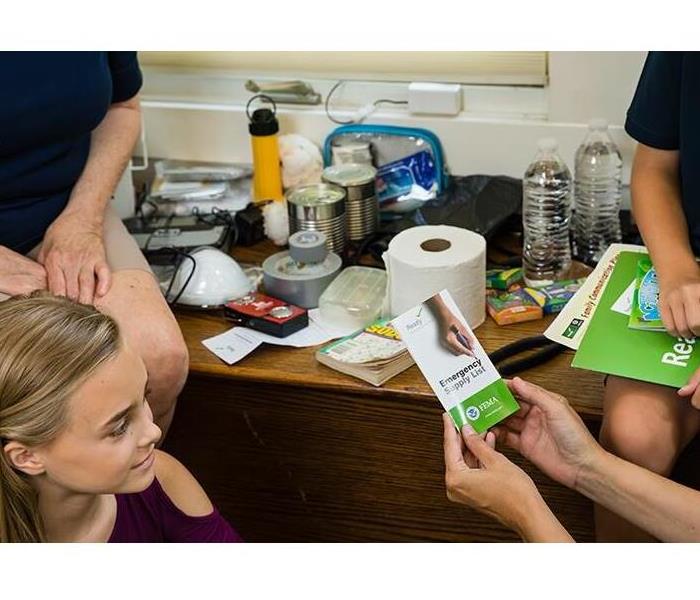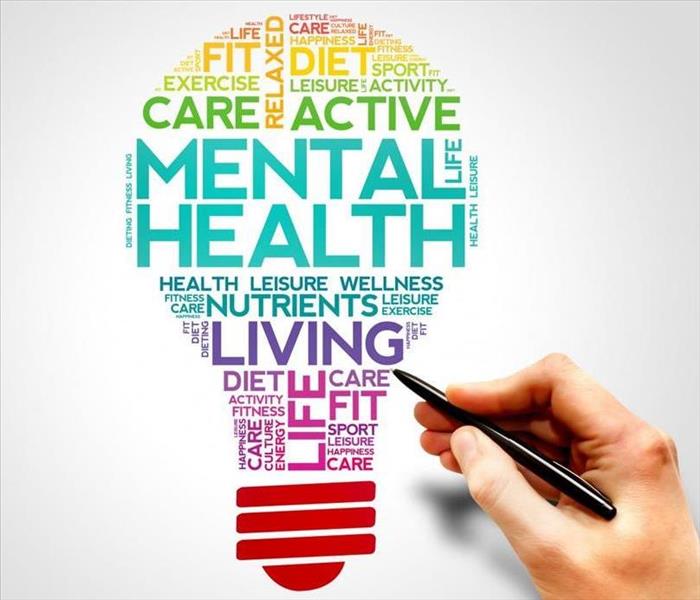Building An Emergency Kit
10/7/2022 (Permalink)
After an emergency, you may need to survive on your own for several days. Being prepared means having your own food, water and other supplies to last for several days. A disaster supplies kit is a collection of basic items your household may need in the event of an emergency.
Make sure your emergency kit is stocked with the items on the checklist below. Download a printable version to take with you to the store. Once you take a look at the basic items consider what unique needs your family might have, such as supplies for pets or seniors.
https://www.ready.gov/sites/default/files/2021-02/ready_checklist.pdf
Basic Disaster Supplies Kit
To assemble your kit store items in airtight plastic bags and put your entire disaster supplies kit in one or two easy-to-carry containers such as plastic bins or a duffel bag.
A basic emergency supply kit could include the following recommended items:
- Water (one gallon per person per day for several days, for drinking and sanitation)
- Food (at least a several-day supply of non-perishable food)
- Battery-powered or hand crank radio and a NOAA Weather Radio with tone alert
- Flashlight
- First aid kit
- Extra batteries
- Whistle (to signal for help)
- Dust mask (to help filter contaminated air)
- Plastic sheeting and duct tape (to shelter in place)
- Moist towelettes, garbage bags and plastic ties (for personal sanitation)
- Wrench or pliers (to turn off utilities)
- Manual can opener (for food)
- Local maps
- Cell phone with chargers and a backup battery
Additional Emergency Supplies
Since Spring of 2020, the Centers for Disease Control and Prevention (CDC) has recommended people include additional items in their kits to help prevent the spread of coronavirus or other viruses and the flu.
Consider adding the following items to your emergency supply kit based on your individual needs:
- Masks (for everyone ages 2 and above), soap, hand sanitizer, disinfecting wipes to disinfect surfaces
- Prescription medications. About half of all Americans take a prescription medicine every day. An emergency can make it difficult for them to refill their prescription or to find an open pharmacy. Organize and protect your prescriptions, over-the-counter drugs, and vitamins to prepare for an emergency.
- Non-prescription medications such as pain relievers, anti-diarrhea medication, antacids or laxatives
- Prescription eyeglasses and contact lens solution
- Infant formula, bottles, diapers, wipes and diaper rash cream
- Pet food and extra water for your pet
- Cash or traveler's checks
- Important family documents such as copies of insurance policies, identification and bank account records saved electronically or in a waterproof, portable container
- Sleeping bag or warm blanket for each person
- Complete change of clothing appropriate for your climate and sturdy shoes
- Fire extinguisher
- Matches in a waterproof container
- Feminine supplies and personal hygiene items
- Mess kits, paper cups, plates, paper towels and plastic utensils
- Paper and pencil
- Books, games, puzzles or other activities for children
<h2survey-processed" href="https://www.ready.gov/food">food in a cool, dry place.
- Store boxed food in tightly closed plastic or metal containers.
- Replace expired items as needed.
- Re-think your needs every year and update your kit as your family’s needs change.
<h2survey-processed" href="https://www.ready.gov/car">in your car.
This Information was taken from ready.gov under the Disasters and Emergencies.

 24/7 Emergency Service
24/7 Emergency Service

